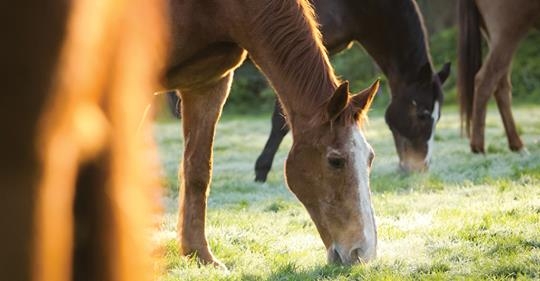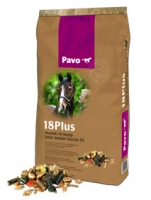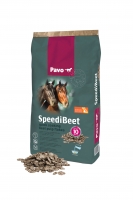|
Advice article filter
|
Nutritional tips for older horsesSenior horses, from 18 years of age onwards, will often have problems with their body weight. The body no longer absorbs the nutrients easily and teeth problems often play a role too. Fortunately, there is a lot you can do to have your senior horse gain weight and keep weight on. An old horse with a poor condition: determine the causeWhen your senior horse drops weight without an obvious reason, the first step is to find out the cause. We recommend starting with a blood test and faeces test. With the blood test the proper functioning of kidneys, intestines and liver can be examined. Perhaps your horse is suffering from deficiencies of some kind or is carrying a disease. By means of a faeces test, you will find out if your horse has worms. Have its teeth checked too, as your horse might have a problem with chewing its feed. Senior horses require good quality roughageThe horse’s diet consists of 70 to 99% roughage! Especially for a too thin horse roughage is essential for a healthy gut functioning. Have your roughage tested by all means. You can find out how much sugar, proteins and energy your roughage contains. Some important points that require special attention:
Turn a senior horse out on grassFor a senior horse that is too thin, it is best to have it turned out on grass all day. The reason is that grass contains much higher energy and protein levels than our roughage. If you can’t offer your horse access to grass, then unrestricted high-quality roughage is essential. Easily digestible horse feedYou can help a senior thin horse by offering it easily digestible feed. Expanded pellets and mueslis with a lot of puffed raw material have been processed as a result of which they are easier for your senior horse to digest. The feed is mechanically ‘pre-digested’ as it were, which makes it easier for the horse to take in the nutrients through the small intestine. Compared to unprocessed feed, the process also reduces the risk of the horse being troubled by colic. Roughage substitutes in case of dental problemsHorses with dental problems have a problem taking in roughage. In that case, a replacement for the roughage should be offered. Pavo SpeediBeet (beet pulp) for example, is full of healthy fibres and needs to be given soaked, so horses with dental problems have no problems eating this. Pavo SpeediBeet combined with Pavo 18Plus is the ideal feed for senior horses with poor teeth. The advantage of Pavo 18Plus is that it can be given both in dry form as well as soaked. When you soak it, the small pellets easily fall apart. If your horse does not manage to eat hay anymore, you can add grass pellets to its diet. Supplements for senior horses
Pavo 18PlusWith Pavo 18Plus, you give your ageing horse everything its body requires, without burdening the system unnecessarily. This dust-free and easily digestible muesli will help your senior to stay fit and healthy. And when at a later age dental problems occur, Pavo 18Plus combined with Pavo SpeediBeet forms the complete feed for the daily needs.  Pavo 18PlusKeeping your senior horse fit and healthy Pavo DailyFitDaily vitamin biscuit enriched with flowers and herbs Pavo SpeediBeetHigh-fibre, quick soaking beet pulp flakes |

